Bone Marrow Transplant Cost In India
Unlock Exclusive Discount : Your Gateway to Premium Healthcare with Medsurge India Health Value Card.

Unlock Exclusive Discount : Your Gateway to Premium Healthcare with Medsurge India Health Value Card.


A bone marrow transplant is a medical procedure that introduces healthy blood-forming stem cells into the body to address issues related to damaged or diseased bone marrow. This procedure may be indicated for conditions such as leukemia, multiple myeloma, or various types of lymphoma. Additionally, certain blood disorders can be treated using stem cell transplants.
In India, it is reported that approximately 3,000 bone marrow transplants are performed each year. A significant reason why numerous patients from various parts of the world choose India for this procedure is the cost-effectiveness of the transplant. The expenses associated with bone marrow transplant cost in India are considerably lower than those in Western countries, while still adhering to international standards.
Bone marrow transplant cost in India starts from 15,000 USD and can go up to 55,000 USD depending on the type of bone marrow transplant. The price associated with bone marrow transplants differs based on the type, with autologous transplants typically being more affordable than allogeneic transplants. This is primarily because autologous transplants utilize the patient’s own bone marrow rather than relying on a donor.
| Countries | Price of Bone Marrow Transplant |
| India | $18,000 |
| United State | $1,20,000 |
| United Kingdom | $1,20,000 |
| Australia | $1,00,000 |
| UAE | $55,000 |
| Thailand | $75,000 |
Note: Keep in mind that the cost stated above are only for the cost of the treatment there will be other additional costs for the final cost of the treatment.
While the cost of bone marrow transplant in India is less compared to other countries there will be other factors that can affect the cost of the final treatment cost. Here are some key factors that can affect bone marrow transplant cost in India:
The above-aforementioned factors can influence the overall expense of a bone marrow transplant in India. However, despite the inclusion of these additional costs, the total price of a bone marrow transplant in India remains significantly lower than that in leading countries worldwide. Consequently, an international patient may save between 40% and 60% compared to the costs in their home country.
Bone marrow transplant (BMT) is a specialized treatment option for individuals diagnosed with specific types of cancer or other medical conditions. This procedure entails the extraction of stem cells, which are typically present in the bone marrow, followed by a filtration process to purify these cells.
Subsequently, the filtered cells are reintroduced either to the original donor (the patient) or to a different recipient. The primary objective of BMT is to infuse healthy bone marrow cells into a patient after their own compromised bone marrow has undergone treatment to eliminate the abnormal cells.
The objective of a bone marrow transplant is to provide a cure for various diseases and types of cancer. In instances where the chemotherapy or radiation doses required to treat cancer are so substantial that they may irreparably harm or obliterate a person’s bone marrow stem cells, a bone marrow transplant becomes necessary. Additionally, such transplants may be required if the bone marrow has been compromised due to a disease.
A bone marrow transplant serves several purposes:
It is essential to carefully evaluate the associated risks and benefits through a comprehensive discussion with your healthcare provider and specialists in bone marrow transplants prior to undergoing the procedure.
Here are some ways to ease your financial burden during Bone Marrow Transplant in India:
The diseases that most frequently benefit from bone marrow transplantation include:
– Leukemias
– Severe aplastic anemia
– Lymphomas
– Multiple myeloma
– Immune deficiency disorders
– Certain solid-tumor cancers, albeit in rare cases
It is important to note that individuals may experience these diseases in varying ways, and a bone marrow transplant may not be suitable for every patient affected by these conditions.
There are various categories of bone marrow transplants based on the identity of the donor. The primary types of bone marrow transplants include:
Autologous bone marrow transplant: In this procedure, the donor is the patient themselves. Stem cells are collected from the patient through either a bone marrow harvest or apheresis (a method for gathering peripheral blood stem cells), preserved, and subsequently reintroduced to the patient following intensive treatment. This process is often referred to as rescue rather than transplant.
Allogeneic bone marrow transplant: In this case, the donor possesses a genetic match with the patient. Stem cells are obtained from a genetically compatible donor, typically a sibling, through either bone marrow harvest or apheresis. Other potential donors for allogeneic transplants may include:
Umbilical cord blood transplant: This involves the collection of stem cells from an umbilical cord immediately following the birth of an infant. These stem cells are known to develop into mature, functional blood cells more rapidly and effectively than those harvested from the bone marrow of another child or adult. The stem cells undergo testing, typing, and counting, and are frozen until required for transplantation.
Your physician will determine the suitability of a bone marrow transplant for your condition. They will conduct a physical examination and perform tests to assess your blood and evaluate the functioning of your heart, lungs, liver, and other vital organs.
If a transplant is deemed a viable option, they will discuss the specific type of procedure you will undergo and outline what you can anticipate during the process.
The patient will undergo numerous test for the bone marrow transplant, include:
A highly suitable donor for a bone marrow transplant is one who possesses human leukocyte antigens (HLA) that closely correspond to those of the recipient. HLA are proteins found in the blood. Medical professionals determine HLA compatibility by analyzing the results of blood tests conducted on potential donors and recipients, a process known as HLA typing. The transplant procedure can be done in two ways i.e. an autologous transplant and an allogeneic transplant.
The Transplant Phase commences with the essential procedure of stem cell collection. In the case of patients receiving cells from a donor (allogeneic transplant), the donor may undergo either a surgical procedure for bone marrow harvesting or apheresis for peripheral blood stem cell collection.
The engraftment period usually starts between days 10 and 28 after a transplant, shown by a slow rise in white blood cell counts. This is a good sign, but patients need careful monitoring since the new immune system is still developing. There is a high risk of complications, especially for those who had an allogeneic transplant, as they might experience acute graft-versus-host disease (GVHD).
As patients progress past the first month, the focus shifts to long-term recovery. Monitoring becomes less frequent, but regular check-ups continue for at least a year. Patients must adhere to strict protective measures, such as:
– Wearing masks in public settings.
– Steering clear of crowded places and individuals who are ill.
– Maintaining a strict diet to prevent foodborne illnesses.
– Taking various medications, particularly immunosuppressants for those who have undergone allogeneic transplants.
– Undergoing regular screenings for potential complications.
Patient Testimonial:-
Complications can differ based on several factors, including:
– The specific type of marrow transplant
– The nature of the disease necessitating the transplant
– The preparative regimen employed
– The age and general health of the recipient
– The degree of tissue compatibility between the donor and recipient
– The occurrence of severe complications
The complications associated with a bone marrow transplant can vary widely, and it is important to note that each individual may uniquely exhibit symptoms.
Medsurge India is a distinguished support system for patients in search of doctors, hospitals, and specialized treatments. We are dedicated to identifying the most appropriate medical solutions tailored to your needs. Our team will furnish you with a roster of accredited, esteemed, and reliable doctors and hospitals to address your medical concerns. Furthermore, we present a treatment plan that aligns with your financial constraints. In addition, we extend our support to patients in securing travel permits, medical visas, and various other necessities.

Hematologist
Consultant
12+ Years
Care Hospital, Banjara Hills, Hyderabad
View Doctor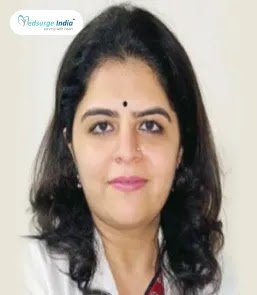
Hematologist
Associate Director
11+ Years of Experience
Max Super Speciality Hospital, Patparganj, New Delhi
View Doctor
Hematologist
Senior Consultant
15+ years of experience
Manipal Hospital, Panaji, North Goa
View Doctor
Hematologist
Senior Consultant
12+ years of experience
Manipal Hospital, Panaji, North Goa
View Doctor
Hematologist
Senior Consultant
20+ years of experience
KMC Hospital, Hampankatta, Mangaluru
View Doctor
Hematologist
Senior Consultant
42+ years of experience
NH Rabindranath Tagore International Institute of Cardiac Sciences, Kolkata
View Doctor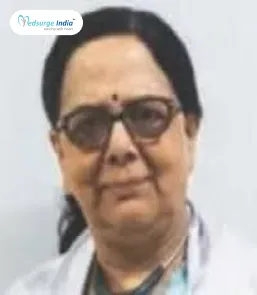
Hematologist
Senior Consultant
25+ years of experience
NH Rabindranath Tagore International Institute of Cardiac Sciences, Kolkata
View Doctor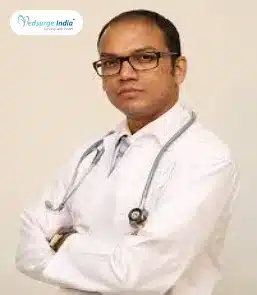
Hematologist
Senior Consultant
14+ years of experience
NH Rabindranath Tagore International Institute of Cardiac Sciences, Kolkata
View Doctor
Hematologist
23+ years of experience
Narayana Superspeciality Hospital, Shibpur, Howrah
View Doctor
Hematologist
Senior Consultant
18+ years of experience
Narayana Multispeciality Hospital, Andul Road, Howrah
View Doctor
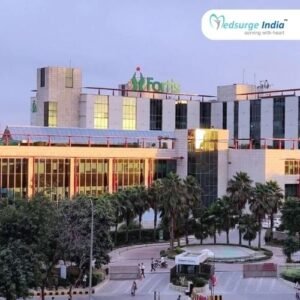

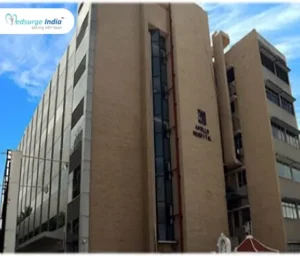

By using our site, you agree to our Terms and Conditions, Privacy Policy and Refund Policy. Medsurge India provides reliable healthcare information and treatment options to support informed decision-making. Our content is designed to support and complement the guidance of your treating doctor, helping you feel informed and confident throughout your healthcare journey. We also Accept International Payments.

Copyright © 2025 NSM ONLINE SOLUTIONS PRIVATE LIMITED. All rights reserved.